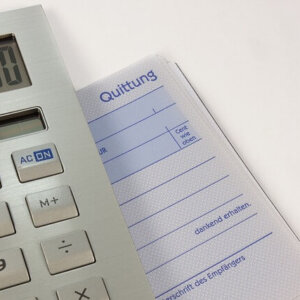Tax affects all of us and knowing what to pay and when is not always straightforward. Our tax accountants at Alexander & Co are experts in providing tax advice to UK businesses. We help you understand all of the issues that can surround tax and guide you through the process.
We can provide either a corporate or personal tax advisor to help guide you through everything you need to know when it comes to navigating tax. Whether that’s getting to grips with your tax returns, the tax reliefs available to you or understanding VAT. Our tax advisors are here to help.
Tax advice from expert tax accountants in the UK
Paying less tax and maximising the wealth you have created is important when you work as hard as you do. At Alexander & Co, our tax accountants based in Manchester can assist you in reducing your tax liabilities, maximising your wealth and easing the administrative burden of tax compliance – wherever you are in the UK.
We are on hand to provide you with comprehensive and professional tax advice, with our services ranging from personal to corporate tax. Contact us today.
Tax advice to assist your business
Not all accountancy practices look at tax issues from the business owner’s point of view or consider how money can be efficiently extracted from that business to benefit you. Here at Alexander & Co, we do things differently.
Our tax advice team consists of varying personal tax advisors that will work with you to understand your objectives, provide comprehensive tax planning to suit these objectives and maximise profits available for distribution.
Our tax accountants can provide you with the practical advice you really need. Alongside our years of experience, our tax team has close ties with HM Revenue and Customs. Because of this, we are always on top of our game and up to date with the latest developments and legislation. When you choose Alexander & Co, you are in safe hands.
Our UK tax accountants can assist you with:
What’s the difference between tax advice and financial advice?
Tax advice is provided by qualified professionals such as chartered accountants and tax advisors like Alexander & Co. It focuses specifically on navigating the intricacies of the UK tax laws and regulations set forth by HMRC.
This specialised tax advice from chartered tax advisors, helps individuals and businesses optimise their tax positions, ensure compliance with ever-changing legislation, and identify potential reliefs or allowances.
Financial advice typically encompasses a broader range of topics, including investment strategies and retirement planning. This is typically provided by qualified financial advisors, who are different from accountants and tax professionals offering tax advice. Through our network, we can recommend an independent financial advisor to suit your personal circumstances.
Finding the right tax advisor for you
At Alexander & Co, we pride ourselves on our personal approach. We build long-standing relationships with our clients, gaining an in-depth understanding of their business and how we can best assist.
We invest in our people to ensure they have the skills and experiences to best serve our clients, from understanding your tax liabilities to helping you maximise the tax reliefs available to you or your business.
Alexander & Co was voted the best tax advisory firm in the UK during the hardest year for businesses.
Contact our tax accountants online
With offices in Manchester city centre and London, our tax accountants are ideally placed to advise and assist individuals and businesses across the UK.
To contact a corporate or personal tax advisor, email info@alexander.co.uk or complete our online enquiry form and we will be in touch.
Tax resources for your business
A collection of guides and tax insights from our experts:
Key contact

John McCaffery
John is tax partner and head of tax at Alexander & Co, having previously worked for KPMG, PwC and Grant Thornton. He advises individuals, entrepreneurs, families and their businesses on tax issues and planning with particular expertise in transactional and forensic taxes.
Contact a professional now
Tax News
(July 2025) advising on the sale of a Haulage company
Alexander & Co is pleased to have advised J. Fisher & Sons Limited on the sale of its business to Fox Brothers Holdings, an integrated construction materials provider headquartered in Blackpool.
(January 2025) Cladding remediation works to be zero rated
HMRC has confirmed that cladding remediation works, where they are carried out on existing buildings can be zero rated. This applies when the remediation work has a direct and immediate link to the initial construction.
(January 2025) salary sacrifice schemes popularity increases following budget changes
A recent report highlighted in Taxation Magazine explains that many mid-market businesses are considering salary sacrifice schemes as away of offsetting the April employees National Insurance Increases. Please contact us to discuss tax efficiencies to assist your business, including salary sacrifice schemes.
(July 2024) HMRC Targeting persons with significant control
Persons with significant control (PSC) are being targeted by HMRC. This is in instances where they have not filed a tax return or may have not declared all their income. It is understood that circa 2,340 letters have been sent out to such individuals by HMRC. Anyone needing advice on completing a self assessment who has received a letter from HMRC can contact us for advice.
Contact a professional now

"An excellent team, I would not hesitate to recommend the firm Alexander & Co to anyone."
Case study – advising on a company acquisition
Case study – Over £170,000 R&D tax reduction secured for a medical technology company
Case Study – advising a buy-to-let landlord on the incorporation of a property company
Tax news



